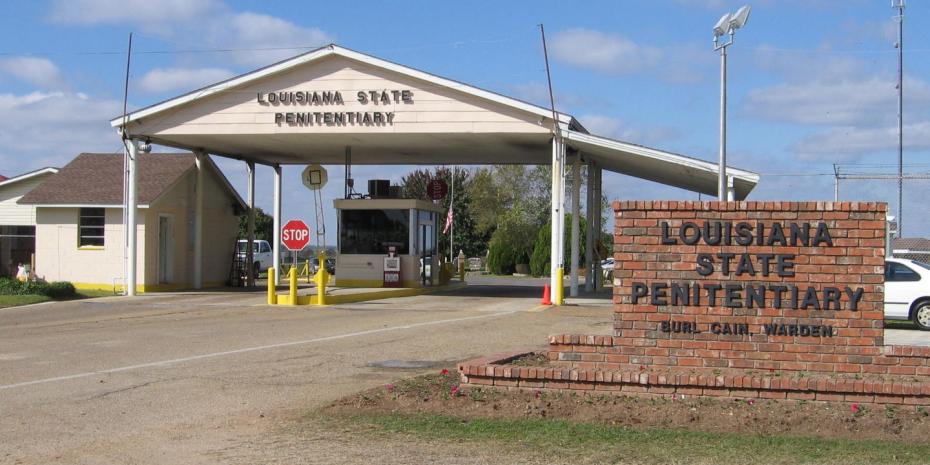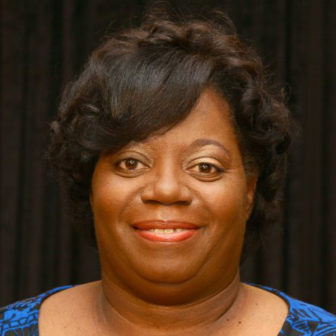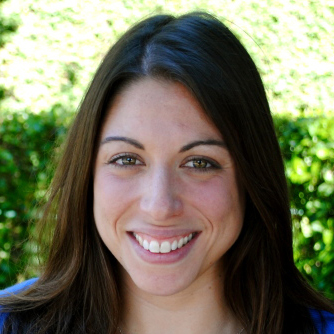Shuttered Angola Facility Could House Teens, Adults in System With COVID-19

This story originally appeared on Juvenile Justice Information Exchange.
They won’t give his name. They won’t give his age, either. Or any other identifying information other than that he is a male and was in custody at the East Baton Rouge Parish Prison in Louisiana. Sent to a hospital for a drug overdose, he was diagnosed with COVID-19.
On Monday he was shipped from the capital to a decommissioned solitary confinement building at one of the most notorious prisons in the nation. Whoever this pretrial detainee is, he is the first participant, albeit unwillingly, in the makeshift plan developed for people in custody during the deadly coronavirus pandemic sweeping the state.
The plan, put together by the Louisiana Department of Public Safety and Corrections and the Louisiana Sheriffs’ Association, a lobbying organization, works like this: If you are in a jail or prison and you get sick with the novel coronavirus you will be sent to the recently shuttered Camp J building in the Louisiana State Penitentiary, better known to the rest of the country as Angola. That applies to pretrial detainees, who have not had a trial and retain a presumption of innocence, while they await their day in court at one of the dozens of local jails that dot the 64 parishes in the state.
It also goes for people in Department of Corrections custody, including any of the youth who are either charged with adult crimes or convicted of them and who continue to remain in Louisiana’s adult criminal justice system. State officials have decided that if you get the virus you are not headed to the hospital or a clinic. You’re going to the decommissioned building where solitary confinement once turned people mad or compelled them to violence.

Rev. Alexis Anderson
“We are literally taking people from medical facilities — these are people who are 15 minutes away from a medical facility — we are talking about taking them from a hospital where they probably weren’t going to die to a place where they probably will,” said the Rev. Alexis Anderson.
But she has a plan of her own to find out who that detainee is. As the head of the East Baton Rouge Prison Reform Coalition she is accustomed to monitoring what happens behind bars in the correctional facility. She and her organization have lobbied for a wide range of reforms in the jail, which has seen 41 deaths of people in its custody since 2012, including the murder of a slight teenager in 2015.
“All we can do is to look to identify him at the coroner’s office,” she said. “You know, once the death certificates start rolling in.”
Michael Cahoon, an organizer with the Louisiana-based Promise of Justice Initiative, said the consequences of this could be catastrophic, much worse than the horror stories coming out of the Federal Correctional Institution in Oakdale, La. There is no plan for doctors to be sent to Angola, and they are going to “deputize” nurses without any emergency room experience to treat the sick, he said. Unlicensed doctors and nurses are allowed to practice in prisons like Angola. They are not ordering ventilators or other essential medical equipment either, he said.
“We’ve been calling it a death camp because that’s how we see it, there’s no way that they are treating these people. None,” he said. “It’s about as bad a plan that could possibly be thought of. The plan is basically, ‘We need to stick them somewhere and we’re not going to send them to hospitals so, there you are.”
The state isn’t revealing the names of the detainees being sent to the makeshift sick ward at Angola, under the medical privacy law HIPAA, Cahoon said. That’s making it impossible for lawyers to challenge their placement there. He’s trying to identify the two people removed from East Baton Rouge Parish Prison, including the one taken from the hospital.
“We’re trying to figure out who these people are when they are transferred. I’m working on data scrapes to find out who these people are when they’re getting moved around,” he said. “Once we’ve done that we can find a lawyer and then they’re going to go to court — but they need to identify them first.”
‘We haven’t thought about that’

Rachel Gassert, Louisiana Center for Children’s Rights
In Louisiana, 14-, 15- and 16-year-olds who are charged with adult crimes are not in the custody of the Department of Corrections. Rachel Gassert, the policy director for the Louisiana Center for Children’s Rights, says she is not sure how many of those youths are either in prison or being held in pretrial detention.
“There are a handful in New Orleans and I assume there are more around the state,” she said.
Experts worry that if the young people get sick with COVID-19 they could be sent to Angola with the other adults. A spokesman for the Department of Corrections didn’t have a clear answer when asked what would happen if a teenager charged or convicted as an adult gets sick.
“We haven’t thought about that,” he said.
Gassert thinks the governor could get more kids out.
“The governor does have the authority to determine who will or will not be held in the custody of the Office of Juvenile Justice, which is a state agency,” she said. “Under his authority he has broad powers to suspend statute and regulations. We believe he has the authority to release children being held by the Office of Juvenile Justice.”
She thinks that youth who are in pretrial detention are a murkier question.
“It’s really an issue that hasn’t been tested by the courts,” Gassert said. “We’re in unprecedented, unchartered waters. … The urgency is great, but we are not seeing a reaction that matches that urgency, not from the courts, not from the governor, or the state agencies.
“… it’s been a little bit of an ad hoc approach; on the pretrial level each jurisdiction is figuring it out on their own,” she said. “In New Orleans we have seen a significant reduction of kids’ pretrial, but it’s been a process to achieve that. That’s partly because police aren’t making as many arrests and we’re not seeing the huge flow in that we normally have seen. … hearing from public defenders around the state, there is not really a proactive intentional effort to get kids out of this situation and get them out of harm’s way and that’s really frustrating.”
In addition, there are several hundred youths in what is known as “secure care” in facilities operated by the state’s juvenile justice system, plus more than 300 in nonsecure group homes, individual living facilities or psychiatric facilities. Gassert hopes the state can get more kids out so it will be easier to keep the ones left six feet apart and avoid harsh segregation techniques. The process has been slow and disorganized, with no apparent guidance from the governor’s office, she said.
“We’re very concerned about the possibility of the overuse of solitary confinement for quarantine and social purposes,” she said. “That’s why it’s so important to get as many young people out of these facilities as possible [so] they don’t have to rely on holding them in separate, individual cells to create that distance.”
Solitary confinement would strain already precarious pandemic circumstances.
“We know how detrimental that is to a kid’s health — it is essentially torture,” Gassert said. “This crisis has already created a very stressful situation for these kids. There are no visits from family, there are no visits from attorneys, from friends; they can’t go to school, they can’t go to their programs. It’s already a volatile situation. Putting them in solitary confinement is going to make it that much worse — much, much worse.”
In her conversations with the state Office of Juvenile Justice, she said they keep saying they are “looking at their population” to figure out ways to release more juveniles.
“But we don’t know what that means,” Gassert said. “The public defenders are filing motions, but they are not being treated like emergency motions. They are getting put on the calendar two or three weeks from now, and then it’s going to be too late. Time is of the essence.”

Grace Bauer-Lubow, Justice for Families
Grace Bauer-Lubow, senior associate and founder of Justice for Families, a national alliance of local organizations committed to ending youth incarceration, was less diplomatic with her critique.
“They’re going to be sick by then, you bunch of fucking idiots,” she said of the state’s sluggish response. Her son spent time in juvenile facilities as a teenager and her mother was a nurse in a prison in southern Louisiana. “The first thing I thought when I first heard about this pandemic coming here, I thought about nursing homes and prisons and I thought it’ll be worse in the prisons because there’s no way out. Health care is nothing … in these places. On a grand scale, i can’t imagine what we’re talking about here.”
‘A concrete bunker’
Camp J was recently shuttered, both for its deteriorating conditions but also for symbolic and safety reasons after a state partnership with the national Vera Institute of Justice to help reduce the facility’s use of solitary confinement as a punitive tool. In 2017, Warden Darrell Vannoy wrote to Department of Corrections Secretary James Le Blanc trying to persuade him to shutter the housing facility.
“The challenges staff encounter at Camp J are more complex than other areas of the institution,” Vannoy wrote in the letter. “Numerous times upon an officer’s knowledge that they will be assigned to Camp J or ‘loaned’ to Camp J for work detail they will leave work sick, walk off the job, or report to Human Resources to resign.”
It is unclear what medical personnel will be available to treat the sick sent to the camp, nor is it clear how many ventilators, masks or other medical supplies the staff will have to treat them. Vannoy directed questions to Ken Pastorick, the communications director for the Department of Corrections.
Pastorick acknowledged Monday that some sick people from jails and prisons from around the state were being held at Camp J but didn’t have a precise number. He did not have clear answers for how the plan would unfold once more sick people arrived — whether they would be kept in cells, put on gurneys, given medicine and have access to ventilators. Calls to the governor’s office were not returned.
East Baton Rouge Sheriff Sid Gautreaux declined requests for interviews. His office directed inquiries to a prepared statement. He is the former president of the Louisiana Sheriffs’ Association, which helped draft the Camp J plan.
Anderson said Gautreaux sat in on a March 25 conference call she participated in between city officials and advocacy organizations about a strategy for people in the prison. He made no mention of the Camp J plan. It was unveiled the next day.
The plan, rolled out with no apparent consultation with anyone from the state’s department of health or any medical personnel, is endemic of scattershot planning among state and parish agencies and the dozens of law enforcement agencies in the state, say experts, advocates and family members. The Camp J plan is just one of a number of plans that reflect a statewide chaos when it comes to a plan for people in some level of detention in the state, they say.
“In the best of times, they operate in a shroud of secrecy, and that’s in the best of times,” Bauer-Lubow said. “Now, we’re not talking about a shroud, we’re talking about a concrete bunker. No one knows what the hell is going on. When this is all over, we are going to be talking about a lot of dead bodies. A lot.”
‘A bunch of dead bodies’
One of those family members wondering what is going to happen next is Dominque Jones. When she spoke to her father, who is serving a life without parole sentence in Angola, rumors were flying around the penitentiary about the Camp J plan. At first, she said, he thought they were going to move him there and turn his block, Camp D, into a storage facility.
Learning about the full extent of the plan did not offer Jones, who founded and runs Daughters Beyond Incarceration, any solace. It is incomprehensible to her that they would send people sick with COVID-19 to Angola, a place with so many elderly prisoners like her father.
“My biggest frustration is not knowing that my father is protected from this virus,” Jones said. “… They say they are making sure they are six feet away from each other, but come on.”
She and the other women in her organization are terrified that the staff aren’t doing enough to keep their fathers safe during the pandemic. Right now she said her father is trying to keep his cell clean with antibacterial soap and bleach that he has been watering down to stretch it out. He begged her to keep money in his Securus account so he can continue to buy cleaning supplies. He worries that if he gets sick they are just going to let him die. She recounted the phone call in a video just after she hung up with him.
Jones wants the governor to offer clemency for elderly prisoners and free communications via email, phone and video conferencing. She wants a mobile notification system to alert families to news and a functioning hotline so they can get reliable updates on the status of family behind bars. Right now, she said the Department of Corrections has one but it doesn’t work, leaving her and other family members wondering whether their loved ones are sick or healthy, alive or dead.
She worries, too, about what could be happening to people now that their visits have been taken away and very little information is coming out. A father in her organization who remains in work release inside East Baton Rouge Prison sent her a video. It shows a prisoner approaching the staff complaining about symptoms and asking to be tested. In the video, she says, they respond to his request by beating him.
“If something isn’t done,” she said, “you’re going to have a bunch of dead bodies.”
